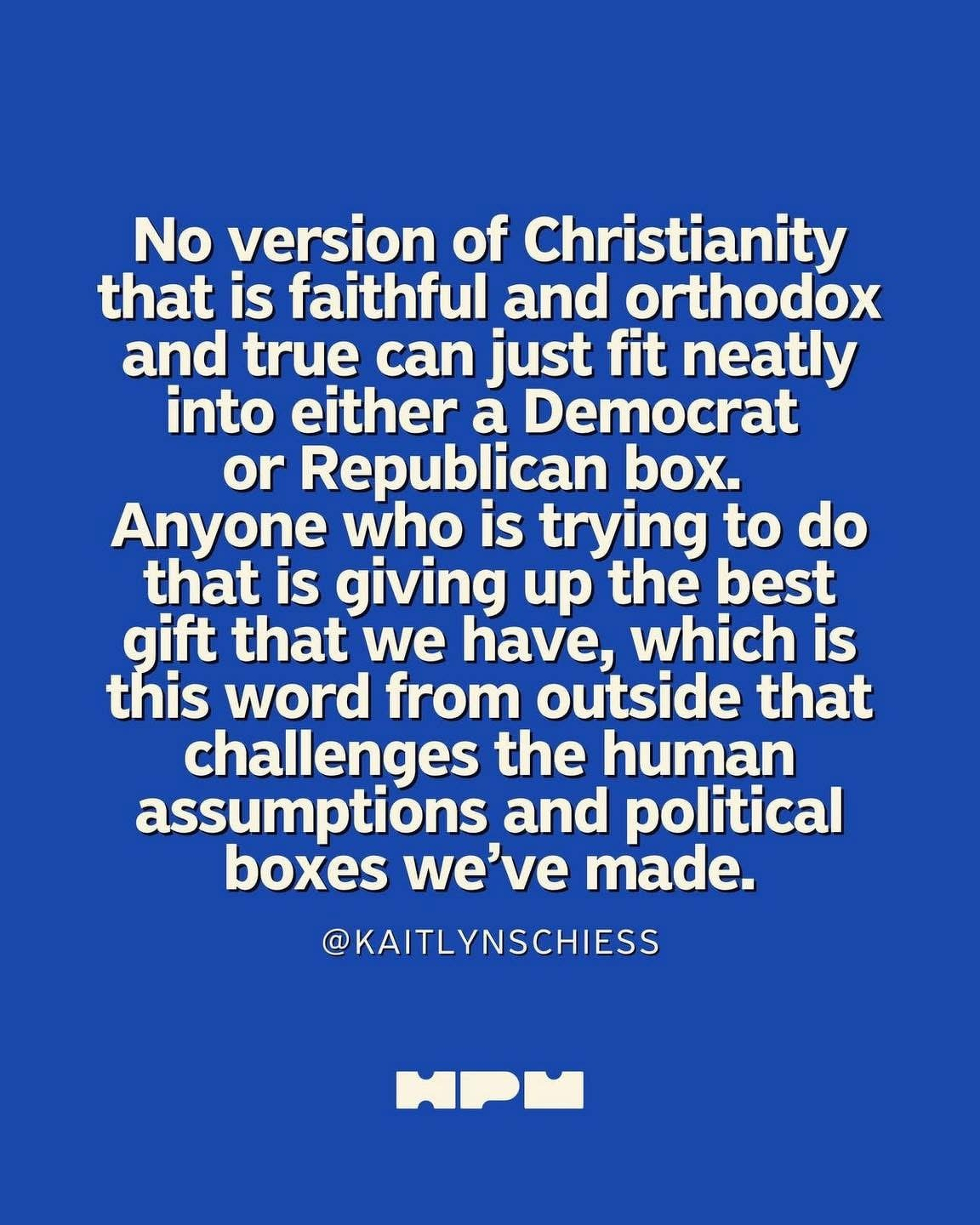I think that Chuck DeGroat has written a very important piece that pastors, especially, need to read and understand. I also think it’s important for anyone who sees to love well and present with another to grapple with too.
Absolutely true. I know I’ve hit on a Kingdom message when people who are on the political right and people on the political begin a sentence with, “Pastor, you know…”

De-humanizing people, making them objects of hatred, leads to atrocities.
I appreciate this approach so much. I am grateful to have my content hosted here.
“To simplify before you understand the details is ignorance.
To simplify after you understand the details is genius.” ~ James Clear
My friend and colleague, Meiko Seymour, writes beautifully on lament.
I will be writing some thoughts on Romans 13 at the beginning of next week. I keep seeing it quoted and used as some sort of cudgel that defends state violence and the degradation of image bearers by the state. I think it might be good for some clarity on that particular passage in its context.
It is remarkable to be able to come to a place like this to rest. I am beyond grateful for this time.

It’s really frustrating when you have a point that you want to make in a sermon but the text doesn’t really allow you to make that point. I mean, I could definitely “get” there by some logical gymnastics, but that whole “integrity” thing gets in the way.
That moment it clicks that the Kingdom of Heaven and hypocrisy of the Pharisees are both illustrated by yeast.
I asked my congregation to consider a simple question this week, “Which beatitude do you think no longer ‘works’ in our modern world?”
It is there we find the place that we have begun to move away from the kingdom of the beloved Son.
I am convinced the way of Jesus demands us to see one another as image bearers. When we de-humanize another it is evidence that we have lost our way.

Currently reading: The Will of the Many by James Islington 📚
After one chapter, I can already tell this is going to be fun.

Finished reading: Warbreaker by Brandon Sanderson 📚
Another fun tale in the Cosmere. I really appreciate Sanderson’s handling of religion.
My next non-fiction read will be Will of the Many by Islington.
A very helpful episode that lends insight and understanding to the events playing out in Minnesota and Iran. I highly recommend this podcast: podcasts.apple.com/us/podcas…